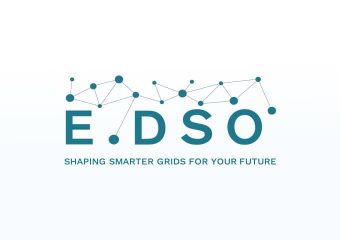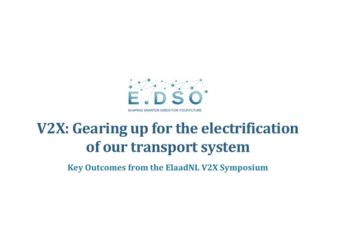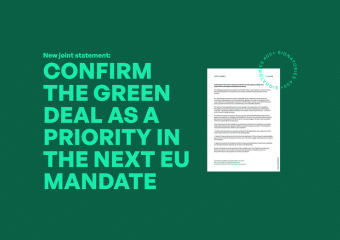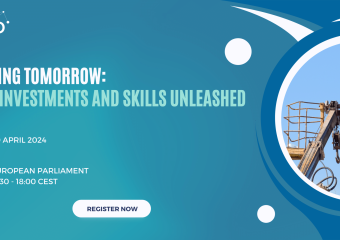The E.DSO-DG ENER-DG CNECT Joint Seminar “A multi-scale calibration approach for a digitalised energy system transformation’ took place today. The event brought together over 200 participants, both in Brussels and online, featured 17 speakers, 5 main sessions and 2 individual keynote remarks from the European Commission.
The aim of the seminar was to engage in a meaningful discussion about the future digitalised energy system and significantly brought forward the idea of the future Energy Data Space, while tackling digital twin, standards and interoperability, data spaces, grid edge and smart metering.
Whilst no one can predict the future, the speakers assessed the importance of the digitalisation in the energy sector and came together to engage in an open, and admittedly sometimes difficult, reflection on the implementation of the Action Plan and beyond. There was one common objective shared by all speakers: Digitalisation of the energy system is not only necessary for it to operate with an increasing share of renewable power, but it also provides an opportunity for the EU to continue to be at the forefront of the global energy transition.
In his welcoming address, E.DSO Secretary General, Roberto Zangrandi, explained the main motivation behind the event and presented the philosophy behind the programme “If we are to investigate the specific opportunities digitalisation offers for the energy transition and to catalyse innovative ideas, then we are in the right place today. My hope is that by the end of this seminar, our conversations will have gone beyond the walls of the conference room, and become a reality”
Max Lemke, Head of Unit Internet of Things at European Commission (DG CNECT), and Vincent Berrutto, Head of Unit Research, Innovation, Competitiveness, and Digitalization (DG ENER) opened the event and presented the ambitious set of initiatives and targets that are put forward to support the digital and green transition.
They emphasized that Data Spaces and Digital Twins are the pillars of the EU Data Strategy as enablers of interoperability in the energy system. Further, the progress and expectations related to the Action Plan on the Digitalisation of the Energy Sector were introduced.
The first session and the second session delved into the practicalities of the digital transformation and focused on how the European Union can achieve its digital sovereignty. Concrete examples of the data spaces were provided. The CEO of Gaia-X, Francesco Bonfiglio, highlighted: “The energy sector shall be driving at the same speed and direction of the technology. We are experiencing today the highest level of technology with the lowest level of trust.”
The panellists focused afterwards on the prospect of a data ecosystem facilitating a secure and trustworthy data sharing and exchange. Also, at issue was the extent to which the current and planned legislation provides an adequate enabling framework for the digital transition to take place. The session two thereafter focused on the grid observability and the state-of-the-art flexibility mechanisms today and what are the requirements and characteristics of DSOs’ flexibility needs in the future. This brought the dialogue towards a recognition of the regulation as the main driver of the change.
The third and the fourth session focused notably on data standards as essential for true interoperability. They further discussed the role of interoperability in clean energy transitions. The panel four aimed to clarify a foundational issue, i.e. what is the “the grid edge” and how this relates to smart metering system.
In the fifth session the discussion evolved around investments in digitalisation of the grid. Concrete examples of the challenges at the local level involved in securing and making the necessary investments into the grid. Thereon out, the conversation developed into a reflection on the need for strong cooperation globally, between authorities, including regulators from different fields. Further the speakers touched upon the evolution of the renewable and energy transition investment landscape over the coming years.
Tzeni Varfi, Principal at E.DSO, closed the deliberations of the event by thanking all the speakers for their excellent thought-provoking talks, the session moderators, for organising and animating their sessions and keeping things both under control and reasonably on time.
She concluded that today’s discussions reminded her a quote attributed to Johann Wolfgang Goethe: “The greatest thing in this world is not so much where we stand as in what direction we are moving.”
Thus, it is time to move in a direction that will help us to deliver together on our shared goal.
If you missed the seminar, you can watch it online here.






